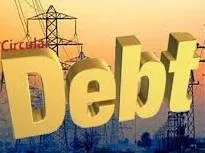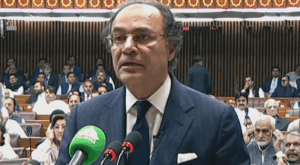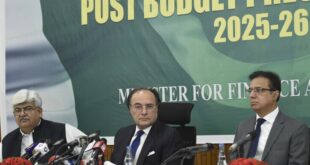
In the first 13 months of the Pakistan Muslim League-Nawaz (PML-N) government’s tenure, the circular debt in the power sector has decreased by Rs 283 billion. According to documents of the Power Division, the circular debt in the power sector was reduced by this amount, reaching Rs 2,396 billion between March 2024 and March 2025.
The documents further explain that by March 2025, the circular debt in the power sector stood at Rs 2,396 billion, down from Rs 2,679 billion in February 2024. Comparing the figures, the circular debt in the power sector decreased by Rs 135 billion in just one month, from Rs 2,531 billion in February 2025 to Rs 2,396 billion in March 2025.
In the first nine months of the current fiscal year, from July 2024 to March 2025, the circular debt in the power sector saw an increase of Rs 3 billion. By June 2024, the total circular debt in the sector was recorded at Rs 2,393 billion.
Pakistan’s economy remains deeply entangled in financial liabilities, particularly in the energy sector, which has been grappling with circular debt for years. This complex problem isn’t simply a conventional debt owed to a single entity, but rather a chain of financial shortfalls between various players in the energy supply chain. This growing issue continues to pose a significant threat to economic stability.
The root causes of this issue can be traced to a variety of factors. Electricity distribution companies (DISCOs) often struggle to collect payments from consumers due to inefficiencies, theft, and a lack of effective recovery mechanisms. Furthermore, the government has historically been slow in disbursing subsidies intended to bridge the gap between the cost of electricity generation and the tariffs paid by consumers.
Recent reports indicate that circular debt has reached alarming levels, and the government is struggling to find a sustainable solution. While some measures have been implemented, such as tariff adjustments and efforts to improve bill collection, these actions have not been sufficient to break the cycle. The lack of a comprehensive and effective strategy to address the underlying issues continues to be a major concern. Urgent and sustained attention is required to prevent further damage to Pakistan’s economy.
In response to the crisis, a consortium of 15 banks has agreed to lend the federal government Rs 1,272 billion to help prevent further accumulation of circular debt in the power sector. The consortium is offering the loan at an interest rate 0.9% lower than the market rate. The agreement is expected to be signed either today or tomorrow, with KIBOR currently offering a rate of 12%.
It is also noteworthy that the sitting government has assured the International Monetary Fund (IMF) that it will reduce the circular debt in the gas and electricity sectors to zero by the end of this year. As of January 2025, the circular debt in the power sector stood at Rs 2,444 billion, which represents 2.1% of Pakistan’s Gross Domestic Product (GDP).
This commitment was made by the Prime Minister during technical and policy-level discussions with the IMF, held in Islamabad from February 24 to March 14, as part of the ongoing reforms in the energy sector.
 BeNewz
BeNewz



